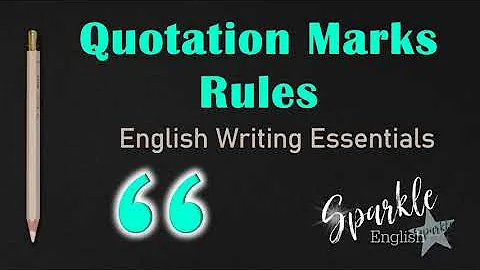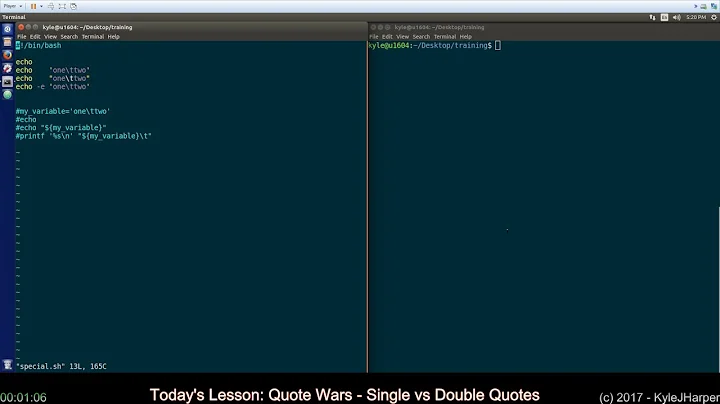When is double-quoting necessary?
First, separate zsh from the rest. It's not a matter of old vs modern shells: zsh behaves differently. The zsh designers decided to make it incompatible with traditional shells (Bourne, ksh, bash), but easier to use.
Second, it is far easier to use double quotes all the time than to remember when they are needed. They are needed most of the time, so you'll need to learn when they aren't needed, not when they are needed.
In a nutshell, double quotes are necessary wherever a list of words or a pattern is expected. They are optional in contexts where a raw string is expected by the parser.
What happens without quotes
Note that without double quotes, two things happen.
- First, the result of the expansion (the value of the variable for a parameter substitution like
${foo}, or the output of the command for a command substitution like$(foo)) is split into words wherever it contains whitespace.
More precisely, the result of the expansion is split at each character that appears in the value of theIFSvariable (separator character). If a sequence of separator characters contains whitespace (space, tab or newline), the whitespace is counts as a single character; leading, trailing or repeated non-whitespace separators lead to empty fields. For example, withIFS=" :",:one::two : three: :fourproduces empty fields beforeone, betweenoneandtwo, and (a single one) betweenthreeandfour. - Each field that results from splitting is interpreted as a glob (a wildcard pattern) if it contains one of the characters
\[*?. If that pattern matches one or more file names, the pattern is replaced by the list of matching file names.
An unquoted variable expansion $foo is colloquially known as the “split+glob operator”, in contrast with "$foo" which just takes the value of the variable foo. The same goes for command substitution: "$(foo)" is a command substitution, $(foo) is a command substitution followed by split+glob.
Where you can omit the double quotes
Here are all the cases I can think of in a Bourne-style shell where you can write a variable or command substitution without double quotes, and the value is interpreted literally.
-
On the right-hand side of an assignment.
var=$stuff a_single_star=*Note that you do need the double quotes after
export, because it's an ordinary builtin, not a keyword. This is only true in some shells such as dash, zsh (in sh emulation), yash or posh; bash and ksh both treatexportspecially.export VAR="$stuff" -
In a
casestatement.case $var in …Note that you do need double quotes in a case pattern. Word splitting doesn't happen in a case pattern, but an unquoted variable is interpreted as a pattern whereas a quoted variable is interpreted as a literal string.
a_star='a*' case $var in "$a_star") echo "'$var' is the two characters a, *";; $a_star) echo "'$var' begins with a";; esac -
Within double brackets. Double brackets are shell special syntax.
[[ -e $filename ]]Except that you do need double quotes where a pattern or regular expression is expected: on the right-hand side of
=or==or!=or=~.a_star='a*' if [[ $var == "$a_star" ]]; then echo "'$var' is the two characters a, *" elif [[ $var == $a_star ]]; then echo "'$var' begins with a" fiYou do need double quotes as usual within single brackets
[ … ]because they are ordinary shell syntax (it's a command that happens to be called[). See Single or double brackets -
In a redirection in non-interactive POSIX shells (not
bash, norksh88).echo "hello world" >$filenameSome shells, when interactive, do treat the value of the variable as a wildcard pattern. POSIX prohibits that behaviour in non-interactive shells, but a few shells including bash (except in POSIX mode) and ksh88 (including when found as the (supposedly) POSIX
shof some commercial Unices like Solaris) still do it there (bashdoes also attempt splitting and the redirection fails unless that split+globbing results in exactly one word), which is why it's better to quote targets of redirections in ashscript in case you want to convert it to abashscript some day, or run it on a system whereshis non-compliant on that point, or it may be sourced from interactive shells. -
Inside an arithmetic expression. In fact, you need to leave the quotes out in order for a variable to be parsed as an arithmetic expression.
expr=2*2 echo "$(($expr))"However, you do need the quotes around the arithmetic expansion as they are subject to word splitting in most shells as POSIX requires (!?).
-
In an associative array subscript.
typeset -A a i='foo bar*qux' a[foo\ bar\*qux]=hello echo "${a[$i]}"
An unquoted variable and command substitution can be useful in some rare circumstances:
- When the variable value or command output consists of a list of glob patterns and you want to expand these patterns to the list of matching files.
- When you know that the value doesn't contain any wildcard character, that
$IFSwas not modified and you want to split it at whitespace characters. - When you want to split a value at a certain character: disable globbing with
set -f, setIFSto the separator character (or leave it alone to split at whitespace), then do the expansion.
Zsh
In zsh, you can omit the double quotes most of the times, with a few exceptions.
-
$varnever expands to multiple words, however it expands to the empty list (as opposed to a list containing a single, empty word) if the value ofvaris the empty string. Contrast:var= print -l $var foo # prints just foo print -l "$var" foo # prints an empty line, then fooSimilarly,
"${array[@]}"expands to all the elements of the array, while$arrayonly expands to the non-empty elements. The
@parameter expansion flag sometimes requires double quotes around the whole substitution:"${(@)foo}".Command substitution undergoes field splitting if unquoted:
echo $(echo 'a'; echo '*')printsa *(with a single space) whereasecho "$(echo 'a'; echo '*')"prints the unmodified two-line string. Use"$(somecommand)"to get the output of the command in a single word, sans final newlines. Use"${$(somecommand; echo _)%?}"to get the exact output of the command including final newlines. Use"${(@f)$(somecommand)}"to get an array of lines from the command's output.
Related videos on Youtube
kjo
Updated on September 18, 2022Comments
-
kjo over 1 year
The old advice used to be to double-quote any expression involving a
$VARIABLE, at least if one wanted it to be interpreted by the shell as one single item, otherwise, any spaces in the content of$VARIABLEwould throw off the shell.I understand, however, that in more recent versions of shells, double-quoting is no longer always needed (at least for the purpose described above). For instance, in
bash:% FOO='bar baz' % [ $FOO = 'bar baz' ] && echo OK bash: [: too many arguments % [[ $FOO = 'bar baz' ]] && echo OK OK % touch 'bar baz' % ls $FOO ls: cannot access bar: No such file or directory ls: cannot access baz: No such file or directoryIn
zsh, on the other hand, the same three commands succeed. Therefore, based on this experiment, it seems that, inbash, one can omit the double quotes inside[[ ... ]], but not inside[ ... ]nor in command-line arguments, whereas, inzsh, the double quotes may be omitted in all these cases.But inferring general rules from anecdotal examples like the above is a chancy proposition. It would be nice to see a summary of when double-quoting is necessary. I'm primarily interested in
zsh,bash, and/bin/sh.-
sunnysideup about 11 yearsYour observed behaviour in zsh depends on the settings and is influenced by the
SH_WORD_SPLIToption. -
 Stéphane Chazelas over 9 years
Stéphane Chazelas over 9 years -
Charles Duffy almost 8 yearsAs an aside -- all-caps variable names are used by variables with meaning to the operating system and shell; the POSIX specification explicitly advises using lower-case names for application defined variables. (While the specification quoted is specifically focusing on environment variables, environment variables and shell variables share a namespace: Attempting to create a shell variable with a name already used by an environment variable overwrites the latter). See pubs.opengroup.org/onlinepubs/009695399/basedefs/…, fourth paragraph.
-
-
Cyker over 7 yearsIn fact, you need to leave the quotes out in order for a variable to be parsed as an arithmetic expression. Why am I able to make your example work with quotes:
echo "$(("$expr"))" -
Cyker over 7 yearsThis is what
man bashsays: The expression is treated as if it were within double quotes, but a double quote inside the parentheses is not treated specially. -
Cyker over 7 yearsAlso, for anyone who is interested, the formal names of split+glob are word splitting and pathname expansion.
-
Charles Duffy about 7 yearsFYI -- over on StackOverflow, I've had someone pull the "optional when a raw string is expected" language in this answer out to defend not quoting an argument to
echo. It might be worth trying to make the language even more explicit ("when a raw string is expected by the parser", perhaps?) -
Aravind Srinivas over 6 yearsGreat answer. There's one other place you don't need quotes, which is when using
+in variable substitution, e.g.${VARNAME+replacement}, although you do need to quote the replacement if it has whitespace or contains any variables, e.g.${VARNAME:+--opt="$VARNAME"}. -
 Friartek over 6 yearsSorry, ignore my previous comment, it was added before complete and edited within time limit. 1)
Friartek over 6 yearsSorry, ignore my previous comment, it was added before complete and edited within time limit. 1)"${$(somecommand; echo _)%?}"technically outputs the exact output of the command, but it also adds an additional newline to the end."${"${$(somecommand; echo _)%?}"%$'\n'}"appears to correct this. 2) It isn't stated what the expected output of"${(@f)$(somecommand)}", to get an array, should be. The result is, all trailing newlines are remove. If you require an array with trailing newlines,"${(@f)"${$(somecommand; echo _)%?}"%$'\n'}"should give you the desired result. -
 Gilles 'SO- stop being evil' over 6 years@Friartek No:
Gilles 'SO- stop being evil' over 6 years@Friartek No:"${$(somecommand; echo _)%?}"is the exact output of the command, including a final newline if there is one (and there usually is). If you want the output of the command without trailing newlines, it's just"$(somecommand; echo _)". -
 Friartek over 6 years@Gilles Hi. Sorry, not what I'm seeing. This is how I understand what is going on.
Friartek over 6 years@Gilles Hi. Sorry, not what I'm seeing. This is how I understand what is going on.$()will strip all trailing blank lines from a command within the parentheses. By adding;echo _to the end of the output of "somecommand", this tacks on an additional line with an underscore so any trailing blank lines from "somecommand" will be protected from$().%?then deletes the underscore, leaving an empty line which wasn't there before. This is especially noticeable when there are no trailing blank lines from "somecommand". Am I missing or misinterpreting something here? -
 Gilles 'SO- stop being evil' over 6 years@Friartek You keep mentioning an “empty line which wasn't there before”, but I don't understand why you think there is such a thing. Adding
Gilles 'SO- stop being evil' over 6 years@Friartek You keep mentioning an “empty line which wasn't there before”, but I don't understand why you think there is such a thing. Adding;echo _adds an underscore and a line break. The command substitution removes this line break.${…%?}removes the underscore. You're left with exactly the output of the command, including its trailing line breaks if any. -
 Friartek over 6 years@Gilles Being ill and on antibiotics is no excuse for dumb mistakes on my part. Let myself get bit by the evil quote gods while working with arrays, then applied those results back to your original code.
Friartek over 6 years@Gilles Being ill and on antibiotics is no excuse for dumb mistakes on my part. Let myself get bit by the evil quote gods while working with arrays, then applied those results back to your original code.${…%?}does work as you said and is a simple way around$(...)stripping trailing "empty lines". Still having a problem with the term "line break", took it to mean some quite different. My use case now isarray=(${(@f)"${$(somecommand; echo _)%?}"}). I apologize to you and all here for the noise. I will delete some of my previous comments so others wont make my mistake. -
Anderson Fernandes Silva over 3 years"Except that you do need double quotes where a pattern or regular expression is expected: on the right-hand side of
=or==or!=or=~." Perhaps I'm misunderstanding this, but AFAIK, a RHS regular expression (i.e. after=~) should always be unquoted (since Bash 3.2 at least). -
 All The Rage over 3 yearsI set a variable like:
All The Rage over 3 yearsI set a variable like:o='OneDrive - MyCompany'. Then I use it:cd "$o"/Docu. Then I press TAB to do word completion on the folder name. The result iscd $o/Documents. I hit enter and it fails because it stole my double quotes. I want to use"$o"as a very fast shortcut for that directory name. I don't want to type"$o/Docuand then press TAB and then", which works. When I start typing I don't want to think about whether I might press TAB to expand something later in the path. I just want to follow the rule to double quote variables. That doesn't work here. Any suggestions? -
 All The Rage over 3 yearsI really want to be able to put backslashes before the spaces when defining the variable and have them be respected after expanding it. Is there any way I can do that? It would solve this problem so nicely.
All The Rage over 3 yearsI really want to be able to put backslashes before the spaces when defining the variable and have them be respected after expanding it. Is there any way I can do that? It would solve this problem so nicely. -
 Gilles 'SO- stop being evil' over 3 years@user7392 I don't know. You should ask a new question.
Gilles 'SO- stop being evil' over 3 years@user7392 I don't know. You should ask a new question. -
RichieHH about 3 yearsSuper answer. Just reinforcing what a mess it as and to... Quote unless you have a specific reason not to




